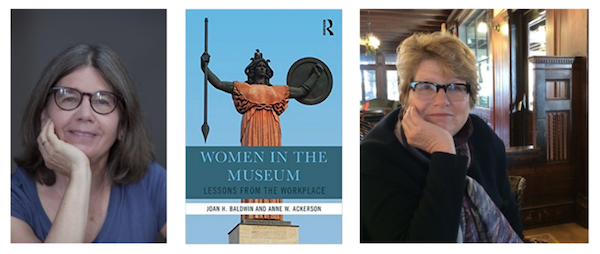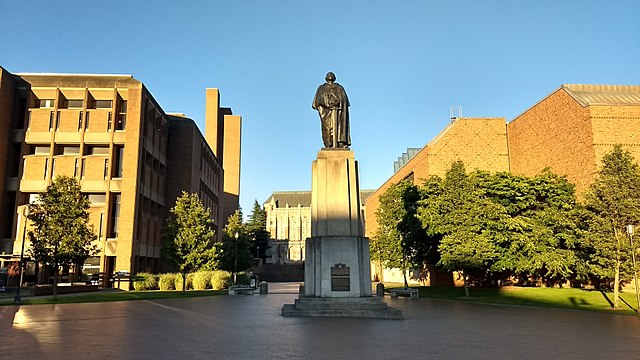CAA News Today
Jonathan Fineberg and Art Since 1940
posted by CAA — June 22, 2022
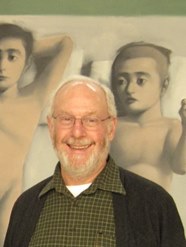
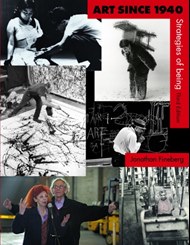
A prolific art historian and critic in the fields of 20th and 21st century art and the psychology of art, Jonathan Fineberg has shaped generations of students with his many publications and textbooks. As a long-time member of CAA, Fineberg describes his experience with the organization:
“Seymour Slive, one of my favorite art history professors in college told me I should join the College Art Association if I wanted to be an art historian. CAA was (is), he pointed out, my professional association! I signed up right away (in 1966) and have remained an active member ever since. I’ve served on the board, I started the “artist interviews” many years ago, I’ve chaired and participated in many sessions and committees over more than fifty years, and until COVID hit I think I only missed one annual conference – my personal protest against the racism and anti LGBTQ+ stance of the state of Louisiana (that was the year we went to New Orleans). I love CAA for the many things it does for artists and art historians.
In order to give back this year I decided that I have made my fair share of royalties on my survey book Art Since 1940: Strategies of Being, so I took back the rights from the publisher and have given a high-resolution copy of the last edition to CAA for free download by any students and teachers who want it. You will find it here. I hope it inspires students to love contemporary art as I do and to bring them to join their fellow travelers in the CAA.”
CAA is immensely grateful for Fineberg’s generous donation to CAA, a digital version of his seminal work, Art Since 1940: Strategies of Being, 3rd Edition. Fineberg is offering this publication at no-cost access to both members and non-members for three years. A valuable pedagogical resource at many universities, this text is out of print, which presents a problem for many art history professors and students who cannot obtain copies. We are grateful for Fineberg’s donation, and for his fifty-plus-year membership in CAA.
Recording now available–CAA Table Talk: Education and the Arts in a Time of Crisis
posted by CAA — October 05, 2020
Wednesday, October 14, 2020
12:00-12:30 PM (ET)
Free and open to the public
CLICK HERE TO JOIN THE CONVERSATION
We’re delighted to introduce CAA members to a new series of conversations between Meme Omogbai, our executive director and CEO, and N. Elizabeth Schlatter, the president of the CAA Board of Directors. Amidst so much change in our lives, workplaces, and world, join CAA leadership for an informal chat on how CAA is reshaping its efforts to provide access and resources where members need it most. Meme and Elizabeth will speak on the economic implications of COVID-19, the urgent importance of members’ scholarship, and the changing terrain of this cultural moment.
For best results, we recommend using the most up-to-date version of Chrome as your web browser. The conversation will be recorded and shared afterwards.
We would love to hear your questions, too. Please send them in advance to: caanews@collegeart.org
SPEAKER BIOGRAPHIES
Meme Omogbai is Executive Director and CEO of College Art Association (CAA). Before joining CAA, Omogbai served as a member and past Board Chair of the New Jersey Historic Trust, one of four landmark entities dedicated to preservation of the state’s historic and cultural heritage and Montclair State University’s Advisory Board. Named one of 25 Influential Black Women in Business by The Network Journal, Meme has over 25 years of experience in corporate, government, higher education, and museum sectors. As the first American of African descent to chair the American Alliance of Museums, Omogbai led an initiative to rebrand the AAM as a global, inclusive alliance. While COO and Trustee, she spearheaded a major transformation in operating performance at the Newark Museum. During her time as Deputy Assistant Chancellor of New Jersey’s Department of Higher Education, Omogbai received Legislative acknowledgement and was recognized with the New Jersey Meritorious Service Award for her work on college affordability initiatives for families. Omogbai received her MBA from Rutgers University and holds a CPA. She did post-graduate work at Harvard University’s Executive Management Program and has earned the designation of Chartered Global Management Accountant. She studied global museum executive leadership at the J. Paul Getty Trust Museum Leadership Institute, where she also served on the faculty.
N. Elizabeth Schlatter is the President of the CAA Board of Directors and Deputy Director and Curator of Exhibitions at the University of Richmond Museums, Virginia. A museum administrator, curator, and writer, she focuses on modern and contemporary art and on topics related to curating and issues specific to university museums. At UR, she has curated more than 20 exhibitions, including recent group exhibitions of contemporary art such as “Crooked Data: (Mis)Information in Contemporary Art,” “Anti-Grand: Contemporary Perspectives on Landscape,” and “Art=Text=Art: Works by Contemporary Artists.” She also serves on and chairs various University and School of Arts & Sciences committees. Prior to the University of Richmond, she worked with exhibitions at the Smithsonian Institution Traveling Exhibition Service (SITES) in Washington, D.C, and in fundraising at the Contemporary Arts Museum, Houston. She is author of Museum Careers: A Practical Guide for Novices and Students (Left Coast Press, Inc.) and a contributor to A Life in Museums: Managing Your Museum Career (American Association of Museums). She has a BA in art history from Southwestern University in Texas, and an MA in art history from George Washington University.
You’re Invited: Envisioning the Future of Higher Education in the Arts
posted by CAA — August 03, 2020
Tuesday, August 18, 2020
2 PM – 3:15 PM (ET)
RSVP HERE
Hosted by Art World Conference
Facilitator: Natalia Nakazawa, Artist, Arts Administrator, and Educator
Participants: Deborah Obalil, President and Executive Director of AICAD; Meme Omogbai, Executive Director and CEO of CAA
In 2020, colleges and universities across the world have rushed to adapt to a new reality that questions the very nature of their work: a pandemic sent students home and protests shone a spotlight on inequality supported by many of our institutions, including those in higher education. Since March, everyone involved in education has had to rethink fundamentals and challenge core assumptions ranging from the format of instruction to what and who creates value. Since arts education is historically vulnerable to funding cuts and much of the instruction relies on hands-on studio classes, specialized equipment, in-person mentorship, and tuition dollars, the systemic changes necessary to thrive require radical, ethical thinking. What are the responsibilities and priorities being considered going into this exceptional academic year?
Artist and educator Natalia Nakazawa will facilitate a discussion between two important leaders in arts education: Deborah Obalil, the President and Executive Director of the Association of Independent Colleges of Art and Design (AICAD), and Meme Omogbai, the Executive Director and CEO of the College Art Association (CAA). Both institutions support and advocate for artists, arts workers, and scholars in the art and design fields. Together, they will discuss the evolving paths forward for higher education in the arts, including structural changes and very significant challenges. What is the role of higher education in times of crisis? Since creativity is nurtured by the institutions they oversee, what are the creative solutions being implemented to address health concerns, anti-racism efforts, adjunct culture, and affordability? What are their hopes and expectations for the future?
This 75-minute webinar is designed with everyone in the art world from current students to artists, arts administrators, and art historians in mind. Questions submitted during registration will be incorporated into the discussion as appropriate.
PARTICIPANT BIOGRAPHIES
Natalia Nakazawa is a Queens-based interdisciplinary artist working across the mediums of painting, textiles, and social practice. Utilizing strategies drawn from a range of experiences in the fields of education, arts administration, and community activism, Nakazawa negotiates spaces between institutions and individuals, often inviting participation and collective imagining. She has held the position of Assistant Director of EFA Studios for over 8 years, supporting a large network of contemporary artists through subsidized studio spaces and professional practice opportunities in midtown Manhattan. Nakazawa received her MFA in studio practice from California College of the Arts, a MSEd from Queens College, and a BFA in painting from the Rhode Island School of Design. Her work has recently been exhibited at Wave Hill (Bronx, NY), Arlington Arts Center (Washington, DC), Transmitter Gallery (Brooklyn, NY), Wassaic Project (Wassaic, NY), The Old Stone House in Brooklyn (Brooklyn, NY), and The Metropolitan Museum of Art (New York, NY). Nakazawa has been an artist-in-residence at MASS MoCA, SPACE on Ryder Farm, The Children’s Museum of Manhattan, and Wassaic Project. She teaches at CUNY.
Deborah Obalil has over twenty years experience as a leader in the national arts and culture industry. She was appointed the Executive Director of the Association of Independent Colleges of Art & Design (AICAD) in June 2012, and then President in the fall 2015. Prior to her appointment with AICAD, Obalil operated a successful boutique arts management consulting firm, Obalil & Associates for four years. The firm provided consultation and facilitation in strategic business planning, marketing research and planning, and board development for non-profit arts organizations, independent artists of all disciplines, and creative for-profit ventures. Obalil has also served as Executive Director of the Alliance of Artists Communities and Director of Arts Marketing Center & Research at the Arts & Business Council of Chicago.
Meme Omogbai is Executive Director and CEO of College Art Association (CAA), the preeminent international support organization for professionals in the visual arts. Before joining CAA, Omogbai served as a member and past Board Chair of the New Jersey Historic Trust, one of four landmark entities dedicated to preservation of the state’s historic and cultural heritage and Montclair State University’s Advisory Board. Named one of 25 Influential Black Women in Business by The Network Journal, Meme has over 25 years of experience in corporate, government, higher education, and museum sectors. As the first American of African descent to chair the American Alliance of Museums, Omogbai led an initiative to rebrand the AAM as a global, inclusive alliance. While COO and Trustee, she spearheaded a major transformation in operating performance at the Newark Museum. During her time as Deputy Assistant Chancellor of New Jersey’s Department of Higher Education, Omogbai received Legislative acknowledgement and was recognized with the New Jersey Meritorious Service Award for her work on college affordability initiatives for families. Omogbai received her MBA from Rutgers University and holds a CPA. She did post-graduate work at Harvard University’s Executive Management Program and has earned the designation of Chartered Global Management Accountant. She studied global museum executive leadership at the J. Paul Getty Trust Museum Leadership Institute, where she also served on the faculty.
Explore RAAMP’s Resources on the CAA Website
posted by CAA — July 30, 2020

RAAMP (Resources for Academic Art Museum Professionals) has a new home! Moving forward, you can find all the resources you know and love here on our website at: collegeart.org/raamp
A project of CAA with support from the Andrew W. Mellon Foundation and the Samuel H. Kress Foundation, RAAMP aims to strengthen the educational mission of academic museums and their parent organizations by providing a publicly accessible repository of resources, online forums, and relevant news and information. RAAMP’s coffee gatherings and video practica cover a wide variety of topics including advocacy, engagement, curricula building, cross-disciplinary collaboration, technology, development, and censorship.
To receive updates and invitations to upcoming RAAMP programming, sign up for the RAAMP mailing list.
For any questions regarding the RAAMP program, please contact Cali Buckley, grants and special programs manager, at: cbuckley@collegeart.org
RAAMP Coffee Gathering: Participatory Conversation on Reimagining Engagement in Academic Art Museums
posted by CAA — July 09, 2020
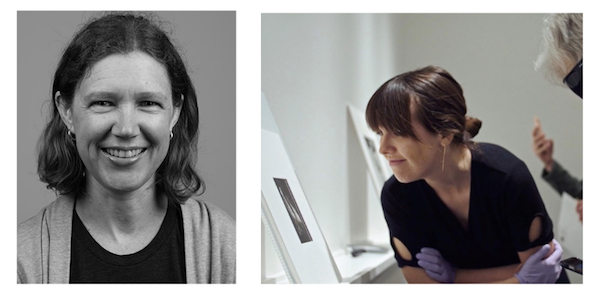
Coffee Gathering: Reimagining Engagement in Academic Art Museums
|
|
RAAMP Coffee Gatherings are monthly virtual chats aimed at giving participants an opportunity to informally discuss a topic that relates to their work as academic art museum professionals. Learn more here.
Submit to RAAMP
RAAMP (Resources for Academic Art Museum Professionals) aims to strengthen the educational mission of academic art museums by providing a publicly accessible repository of resources, online forums, and relevant news and information. Visit RAAMP to discover the newest resources and contribute.
RAAMP is a project of CAA with support from the Andrew W. Mellon Foundation and the Samuel H. Kress Foundation.
RAAMP Coffee Gathering: Gender Equity in the Museum (and Arts) Workplace
posted by CAA — June 30, 2020
Coffee Gathering: Gender Equity in the Museum (and Arts) Workplace
On Thursday, July 2 at 2:00 PM (EST) we will speak with Anne Ackerson and Joan Baldwin on gender equity in museums and workplaces.
To RSVP to this Coffee Gathering, please fill out this form.
A former museum director, Joan H. Baldwin is the Curator of Special Collections at The Hotchkiss School. She is the principal writer for the Leadership Matters blog which had 55,000 views in 2018. Her work has also appeared in The Museum Blog Book, “History News,” and “Museum” Magazine, Museopunks, and “The Guardian.” She is a co-founder of the Gender Equity in Museums Movement, and teaches in the Johns Hopkins University museum studies program. With Anne Ackerson, she is the co-author of Leadership Matters (2013) and Women in the Museum: Lessons from the Field (2017). She and Ackerson published a revision of Leadership Matters: Leading Museums in an Age of Discord in August 2019.
Anne W. Ackerson is a former history museum director, director of the Museum Association of New York, and director of the national Council of State Archivists. She is currently an independent consultant to cultural and educational nonprofits, specializing in leadership, governance, and management issues. With Joan H. Baldwin, she is the co-author of Leadership Matters, a book examining history museum leadership for the 21st century, and Women in the Museum: Lessons from the Workplace. She is a co-founder of the Gender Equity in Museums Movement (GEMM), which is focusing its recent efforts on education, advocacy, and policy development around pay equity, salary transparency, and sexual harassment in the museum workplace. In 2018, she and Baldwin spearheaded research, revealing that 62% of the museum workforce are affected by some form of gender discrimination. In addition to research and writing about gender inequity, she and Baldwin have presented their findings to the Texas and Pennsylvania Associations of Museums as conference keynoters and via their blog, Leadership Matters.
RAAMP Coffee Gatherings are monthly virtual chats aimed at giving participants an opportunity to informally discuss a topic that relates to their work as academic art museum professionals. Learn more here.
Submit to RAAMP
RAAMP (Resources for Academic Art Museum Professionals) aims to strengthen the educational mission of academic art museums by providing a publicly accessible repository of resources, online forums, and relevant news and information. Visit RAAMP to discover the newest resources and contribute.
RAAMP is a project of CAA with support from the Andrew W. Mellon Foundation and the Samuel H. Kress Foundation.
Coronavirus-Related CAA Office Closure
posted by CAA — March 16, 2020
The recent outbreak of coronavirus (COVID-19) has forced us to make major changes to lives. It has hit our members hard, with the movement of classes online for the remainder of the semester, the closure of major museums, and the cancellation of exhibitions, art fairs, conferences, and meetings. Over the last ten days, we have been posting resources on our twitter feed and on CAA News to help those affected by this health crisis.
RESOURCES FOR CORONAVIRUS-AFFECTED ARTISTS AND FACULTY
For the health and well-being of our staff, we have moved to working remotely. That means that our offices in New York City are closed until further notice.
If you have questions about your membership, please email us at membership@collegeart.org, as we will be checking our voicemails infrequently. Please be patient with your request as we navigate this new way of working under extraordinary circumstances.
Above all, please remain safe and healthy!
Editor-in-Chief Sought for Art Journal Open
posted by CAA — December 17, 2018
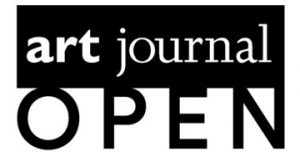
The Art Journal Editorial Board invites nominations and self-nominations for the position of editor-in-chief of Art Journal Open for the term of July 1, 2020–June 30, 2023 (with service as incoming editor designate, July 1, 2019–June 30, 2020). A candidate may be an artist, art historian, critic, educator, curator, or other professional within the membership served by CAA; institutional affiliation is not required. Art Journal Open is an online forum for the visual arts that presents artists’ projects, conversations and interviews, scholarly essays, and other content from across the cultural field. The independently edited journal publishes original material by artists, scholars, teachers, archivists, curators, critics, and other cultural producers and commentators, with a commitment to foster new intellectual exchanges about contemporary art and culture. Art Journal Open prioritizes material that makes meaningful use of the web, such as multimedia formats and techniques, and is published on a continual, rolling basis.
The editor is responsible for commissioning all content for Art Journal Open. He or she solicits or commissions projects, texts, and time-based content by artists and other authors, and determines the appropriate scope and format of each project. Working in consultation with the Art Journal editor-in-chief, reviews editor, and editorial board, the editor determines which pieces should undergo peer review and subsequent revision before acceptance. The editor also works with authors and a CAA staff editor on the development and preparation of materials for publication. The editorial board expects that a significant portion of the journal will be geared to work or concerns of artists, and that the editor will endeavor to give voice to underrepresented perspectives. Qualifications for the position include a broad knowledge of current art, the ability to work closely with artists in a wide variety of practices, and experience in developing written and other content for arts platforms. The position includes membership on the editorial board and, after the orientation period, an annual honorarium, paid quarterly for the three years the of the editorship. The editor attends the three meetings each year of the Art Journal Editorial Board and, as an ex-officio member, of the Publications Committee—held in New York or by teleconference in the spring and fall, and at the CAA Annual Conference in February—and submits an annual report to CAA’s Board of Directors.
Candidates must be current CAA members and should not serve concurrently on the editorial board of a competitive journal or on another CAA editorial board or committee. The editor-in-chief may not publish her or his own work on Art Journal Open or in Art Journal during the term of service. Nominators should ascertain a nominee’s willingness to serve before submitting a name; self-nominations are also welcome. Please send a letter describing your interest in and qualifications for the position, a CV, and at least one letter of recommendation to: Art Journal Open Editor Search, CAA, 50 Broadway, 21st floor, New York, NY 10004; or email the documents to Heather Holmes (hholmes@collegeart.org), CAA Associate Editor for Digital Publications.
Deadline: April 1, 2019; finalists will be interviewed on May 2 in New York.
CAA Announces Guidelines for Addressing Proposed Cuts to Arts and Humanities Programs and Departments
posted by CAA — November 12, 2018
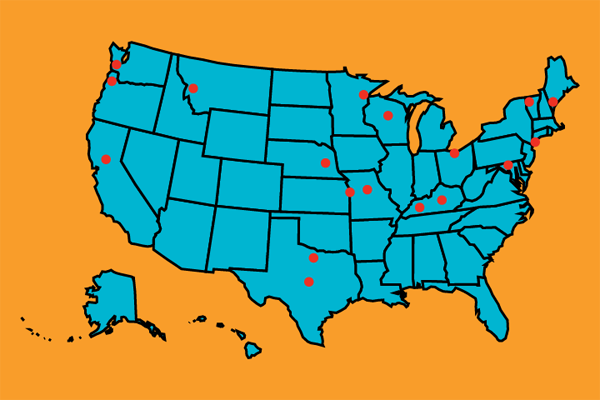
Campuses across the country have been affected by cuts to the arts and humanities. See the full list here. Graphic: Allison Walters
By any number of metrics, the arts and humanities are experiencing challenging times. Funding is under threat from the Federal government. Student enrollment is dropping in higher education classes focusing on the arts and humanities. The number of tenure-track faculty positions are diminishing in arts and humanities departments. The wide support of STEM-centered education has placed an emphasis on career paths with measurable and immediate financial outcomes. Yet, we know the importance of an arts and humanities education, not just for those looking to have careers in the arts and humanities but those across the entire professional spectrum.
In response to the challenges in the arts and humanities, some universities and colleges in the United States have cut programs, collapsed libraries, or shuttered entire departments. These steps, taken as cost-saving measures, only increase the uphill battle for the arts and humanities. Over the past years, CAA has tracked these changes in higher education through the organization’s own research efforts and through narratives relayed directly from our members. These actions taken by administrations are in no way secret. In article after article, the alarm has been sounded. We believe there is a better way to resolve these issues and protect the arts and humanities at the same time.
To bridge this divide, CAA is pleased to release “Guidelines for Addressing Proposed Substantive Changes to an Art, Art History or Design Unit, or Program at Colleges and Universities.”
“These guidelines provide a path for open communication between faculty and administration,” says Hunter O’Hanian, executive director of CAA. “With this new tool to be used by both administrations and faculty equally, CAA builds a resource that is vital to strengthening the arts and humanities on campuses. The guidelines create clearly definable steps and parameters for a process that when handled badly leads to fissures between faculty, students, and administrations.”
The “Guidelines for Addressing Proposed Substantive Changes to an Art, Art History or Design Unit or Program at Colleges and Universities” call for a deeper understanding of the factors and issues that have precipitated the action to close a department or program. The guidelines outline two clear paths: they encourage constituencies to communicate about the potential changes, and they pave the way to resolution without having to eliminate or downsize the program or department.
If those conversations fail to reach a satisfactory outcome with the educational institution, the guidelines emphasize that the institutional administration must do everything it can to see that the program continues. And, as is the case with all scholastic endeavors, the administrations must show their work—they must provide documentation that the department has been adequately resourced and funded. It must demonstrate that growth has been encouraged rather than to allowing it to lay fallow.
“CAA remains convinced that students and society derive lasting benefit when institutions offer a diverse range of academic resources to support different learning styles,” says Jim Hopfensperger, president of the CAA Board of Directors. “These new CAA guidelines outline best practices toward sustaining this essential diversity of academic programs and operational assets.”
Hopfensperger adds that “CAA believes that students, staff, faculty, and institutional leadership teams are all well served by inclusive processes, open lines of communication, engagement across constituencies, and empathetic deliberations.”
IMPACT OF ARTS AND HUMANITIES TOOLKIT
COLLEGES FACING CUTS TO ARTS AND HUMANITIES PROGRAMS
Authors and Contributors for the “Guidelines for Addressing Proposed Substantive Changes to an Art, Art History or Design Unit or Program at Colleges and Universities”:
CAA Working Group for Guidelines for Addressing Proposed Substantive Changes to an Art, Art History or Design Unit or Program at Colleges and Universities: Tom Berding, Michigan State University; Brian Bishop, Framingham State University (Chair, CAA Professional Practices Committee); James Hopfensperger, Western Michigan University (CAA Board President); Charles Kanwischer, Bowling Green State University; Karen Leader, Florida Atlantic University; Richard Lubben, College of the Sequoias; Paul Jaskot, Duke University; Hunter O’Hanian, CAA Executive Director.




